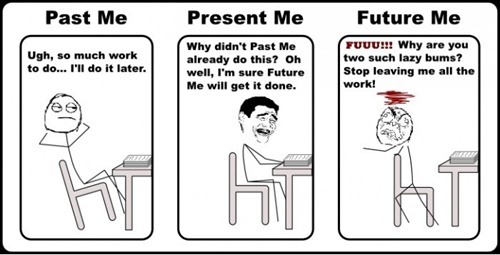
5 Tips for settling into a full time role (and you won’t believe number 3!)
(FYI, the title of this post was intentionally clickbaity for ironic purposes only.)
It’s been way too since I last posted anything here. But here goes…
Ever since I started my (not-so-new-anymore) full time job I’ve thought about the transition that a ‘young adult’ would have to make. So I’d thought I’d share my thoughts and advice for those beginning their journey into full time employment:
(Warning: This is from my experience in an office environment, but I feel like it can be applied in other types of work also.)
1) Be hungry to learn:
- You will be one of the least experienced in the workplace in terms of knowing your role and company, but also in life.
- This is an opportunity to be a sponge. Be curious, listen, and try to understand as much as possible.
- Put together the pieces of how to be a valued member of your team as quickly as possible i.e. What are people looking for?

2) Establishing a network:
- From the person out in reception, to your manager, to your colleagues and even the cleaner.
- The people you see on a day to day basis will affect your ability to be productive and shape your career.
- The common saying is, “It’s about who you know”, but more importantly, “It’s about who knows you, and what they know you for.”
- Time spent away from actual work should be seen as an opportunity for these people to get to know you.
- Going for coffee, or lunch, or a company function, these are the times to establish your network in a casual way.

3) Office Politics:
- The higher you move up, the greater complexity of relationships.
- Regardless if you want to play office politics, it will exist in one form or another.
- This can be both an negative an positive aspect of your work, but it would be ignorant to dismiss it’s existence all together.
- It would be advantageous to understand people’s motivations and pain points. How they incentivised and where they fit within the office are good questions to keep in the back of your mind.

4) The future:
- Knowing your progression options is important. Actively seek out those who have had similar experiences both within your company or in your industry in general.
- Education is crucial for advancement, and just because you’re outside of the traditional classroom does not mean you should stop learning.
- Seek as much feedback as possible to understand your strengths and weakness.

5) Work/Life balance:
- Or in some cases, work/life integration. There are two main views on this:
- 1) Work / life integration – Some people love what they do, and they live their job.
- 2) Work / life balance – Work is a means to an end. There are boudaries, and the two are very distinct.
- In either case, we become more time poor and looking back on my uni days, ‘free time’ was a luxury that was usually wasted. Socialising and being active with hobbies takes more organisation, planning and prioritising.

Hope you found this post help if you did, please “like”, “favourite” and “share”. Any feedback appreciated.